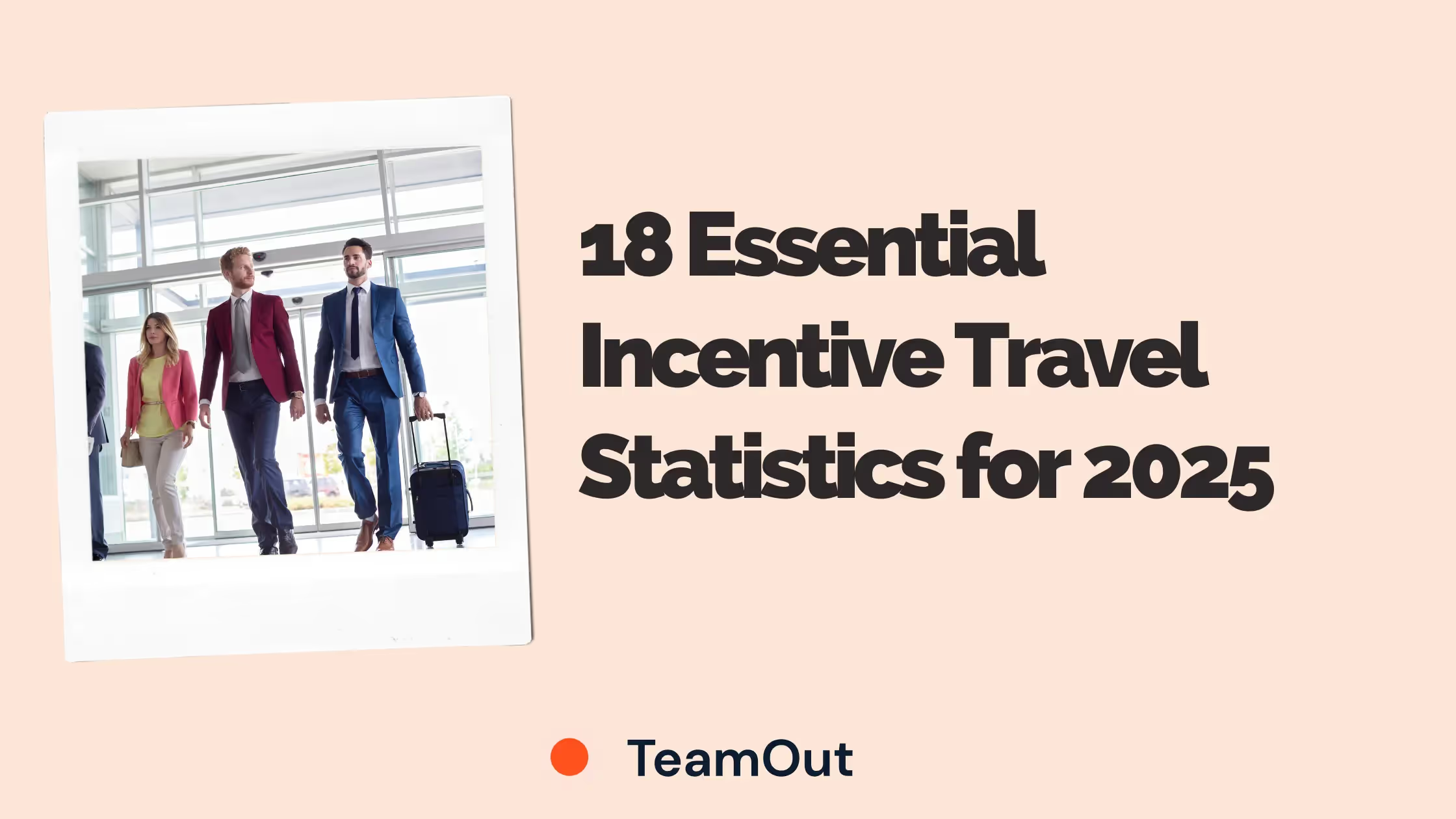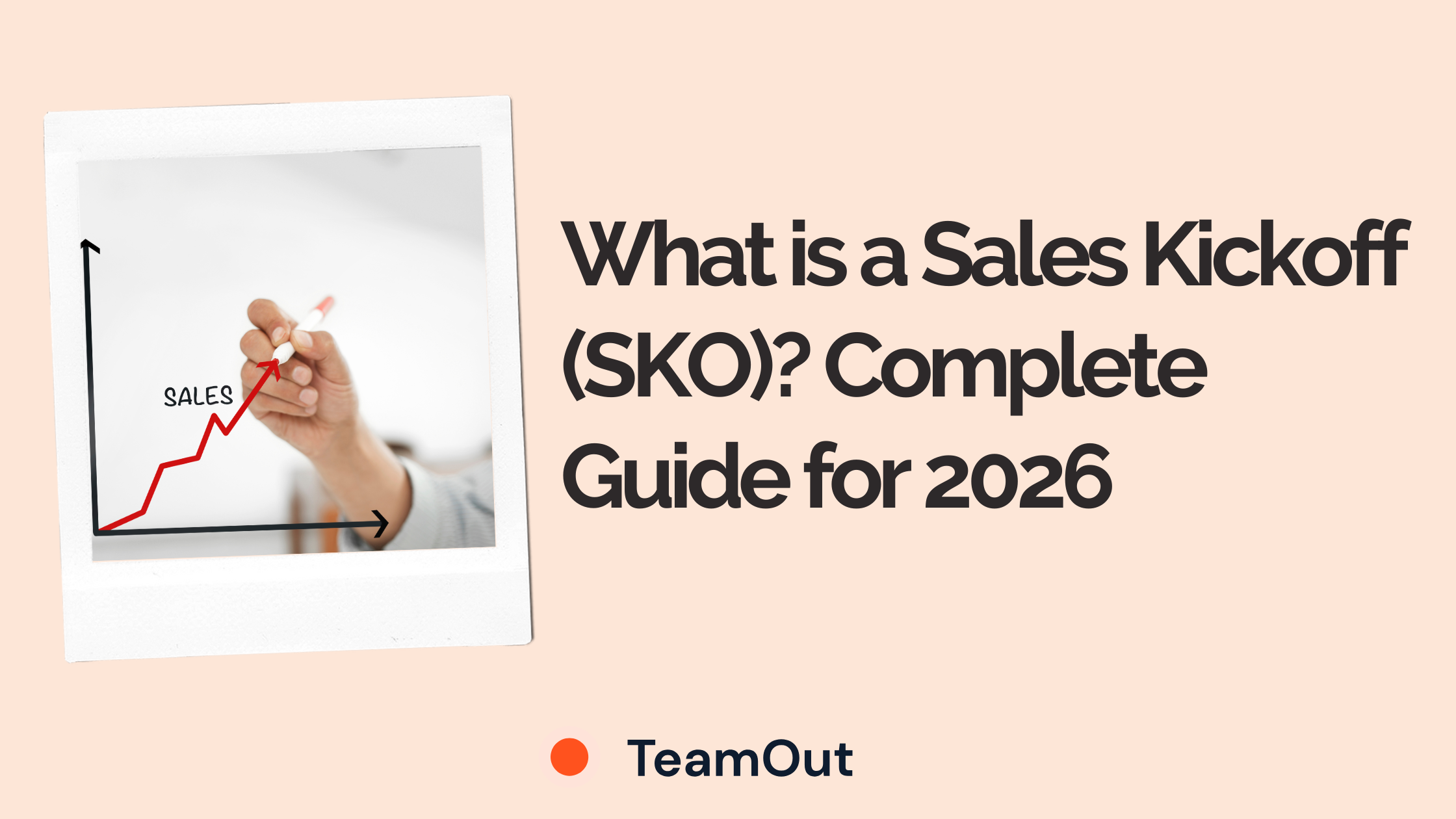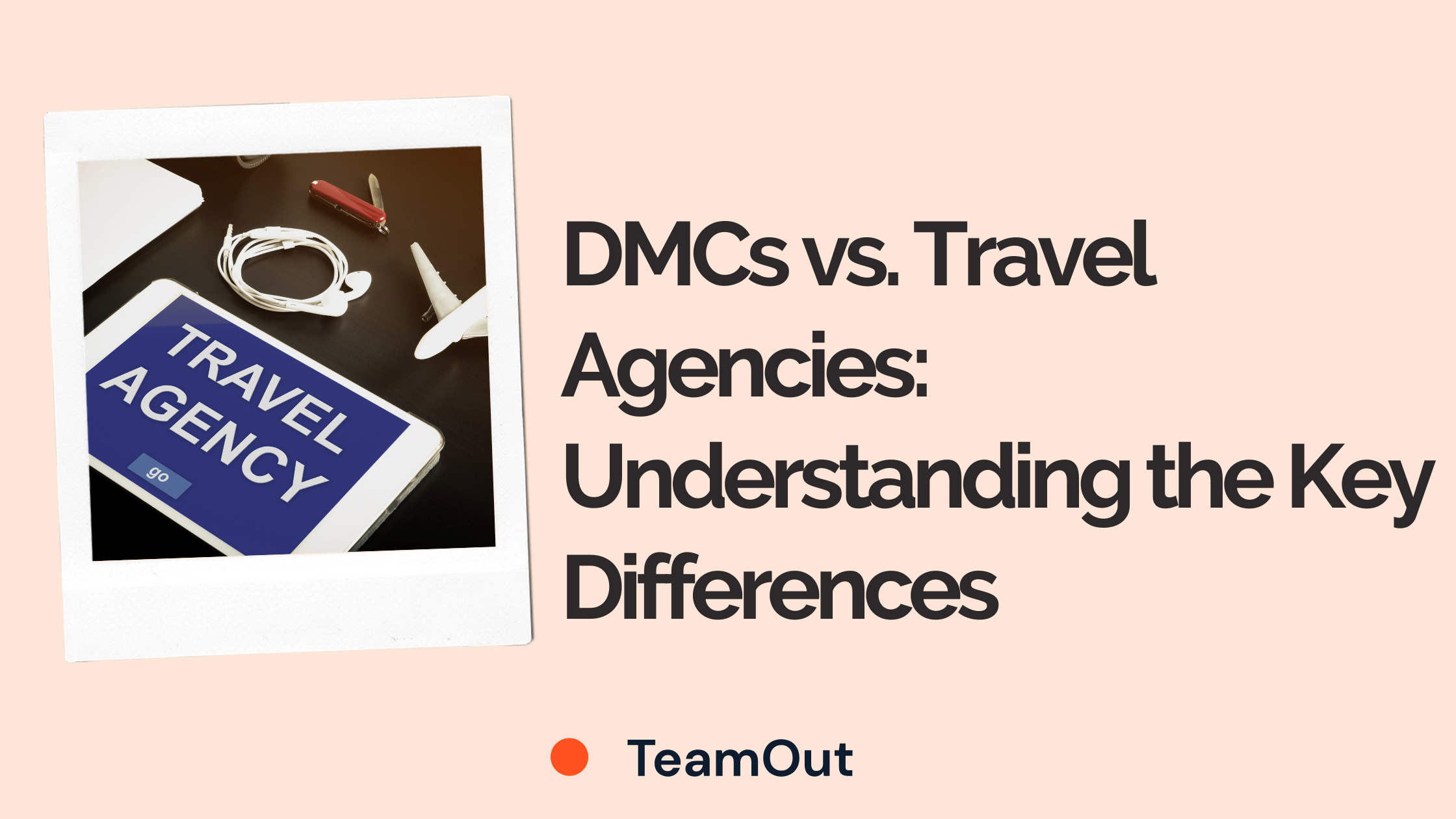Incentive travel is booming in 2025, and the numbers speak volumes. As organizations compete for top talent and look for new ways to motivate their workforce, these reward trips have become more than a treat: a necessity.
With new work models --hybrid and remote– on the rise, it’s every company’s job to accompany the evolution of corporate trends that keep their top employees loyal and engaged.
With spending on incentive travel expected to increase by 54% by the end of 2025, businesses have started to recognize the power of non-cash rewards. The average budget per participant has reached $4,900, reflecting the investment companies are willing to make in their employees' satisfaction and engagement.
From being a competitive advantage to boosting business performance, incentive travel is proving to be a game-changer in the corporate world.
Explore our top 18 statistics that reveal why incentive trips have become an indispensable tool for success in 2025.
18 Essential Incentive Travel Statistics: Latest Data for 2025
1. By the end of 2025, spending on incentive travel is expected to increase by 54%, as phrased by the IRF Incentive Travel Index
This statistic shows that businesses are increasingly dedicated to creating meaningful experiences for their employees. More than a treat, incentive trips become essential in keeping employees motivated and retaining top talent.
2. Based on the National Institutes of Health research, organizations that provide their employees with benefits and incentives reduce the likelihood of turnover by 26% and increase retention by 14%
Even though these research results are inclusive of all benefits and incentives, they still underscore the importance of building out a strategy to show appreciation for employees’ work. Engaged and motivated teams are more productive and less likely to look for another job.
Incentive travel is an appealing and effective way to recognize your team’s good work. Peer recognition programs, team celebration events, and even prizes for collaborative achievements can help employees feel genuinely valued.
4. As reported by an Incentive Research Foundation study, 91% of respondents agree that with dispersed workforces, incentive travel has become even more important for building engagement and company culture
This percentage highlights the role that strategic travel rewards play in maintaining team cohesion and motivation in remote and hybrid work environments. Accompanied by team-building activities, opportunities for networking, and downtime, incentive trips build engagement in a creative (yet natural) way and promote a healthy company culture.
5. Gallup’s Annual Employee Engagement report states that only 18% of U.S. employees say they are “extremely satisfied” with their company as a place to work
Incentive travel offers teams shared experiences in outstanding destinations, a break from the office, and opportunities to relax and socialize. They are also a catalyst for employees' motivation. Organizing structured incentive trips, recognition programs, and team-building activities that promote a healthier workplace can help transform company culture.
6. 81% of respondents say the main reason to invest in incentive travel is to retain talent, while 62% state competitive advantages are increasing in importance, citing the IRF Incentive Travel Index
Though talent retention is pointed out as the main reason why companies should invest in incentive travel, there’s no denying that these non-cash incentives place organizations in an advantageous place. Employees are increasingly valuing companies that care about their well-being and that recognize their efforts.
7. A Forbes article reports that, for every $1 invested in employees, $6 was saved in company health care costs
Investing in your employees pays off, working with incentive travel companies showcase outstanding results in boosting morale of employees. This ROI makes a compelling case for incentive travel focused on employee well-being. By viewing these offsites as investments rather than expenses, companies can improve employee health, reduce healthcare costs, and boost productivity.
8. In 2024 alone there was a growth of 61% in incentive travel programs, as compared to 2019, according to the Incentive Research Foundation Trends Report
These statistics show how much the pandemic changed companies' priorities when it comes to corporate incentives and incentive travel. With the change from in-person to hybrid and remote work models, gathering teams for a motivation trip became a priority for most organizations.
9. In North America, 79% of participants agree that business travel significantly boosts job satisfaction. The percentage rises to 83% in Europe and 96% in Asia, as stated by the Global Business Travel Association
Millennials are the age group that most values these opportunities, highlighting the importance of corporate retreats and incentive trips in attracting and retaining top talent. These stats underscore the importance of corporate events and incentive travel as a valuable strategy to keep employees motivated.
10. As reported by the IRF Incentive Travel Index survey, 53% of respondents cited incentive travel as essential from a profit standpoint, while 48% saw it as a source of competitive advantage
11. As stated in a survey by Indeed, 73% of remote workers are eager to engage in social interactions and group activities with their teams
Incentive trips are one possible solution for this isolation, providing a much-needed dose of shared experiences in a new environment. Furthermore, these trips are a way of motivating employees and showing appreciation. This statistic also highlights the importance of corporate retreats as well as the integration of team activities in employees’ routines, from virtual games to icebreakers.
12. The Incentive Federation cites that U.S. businesses spend $176 billion on “incentives, recognition, rewards, incentive travel, and corporate gifting, according to the New Incentive Market Study
Only an impactful and valuable initiative justifies such a significant investment. This underscores the role that incentive travel plays in recognizing employees’ work, keeping motivation, and boosting team culture.
13. According to the Incentive Travel Index 2024 survey highlights, by 2026, 45% of buyers expect incentive travel activity to be significantly above 2024 levels
This shows a growing trend in incentive travel programs, which proves how effective and necessary these are in the current work environment. In the past, these trips were destined for top employees only. Nowadays, it’s crucial that everyone feels included and worthy of this type of incentive.
14. U.S. Businesses spend $22.5 billion annually on incentive travel alone, as reported by the Incentive Federation
Public and private businesses are starting to acknowledge the importance of motivating and recognizing their top sales reps, channel partners, and customers. Advantages are clear, from an increase in productivity to a boost in employee engagement. It’s simple Maths: If it did not work, companies would slash their investment the following year.
15. 74% of U.S. businesses use non-cash rewards to recognize and reward in the form of incentive travel, merchandise, or gift cards, based on the IRF Foundation research
Even though these statistics don’t highlight the percentage of businesses that recur to incentive travel alone, it’s possible to draw a simple conclusion: companies are starting to realize that rewarding their employees makes a difference in engagement, talent retention, productivity, and collaboration.
16. When it comes to incentive travel, 70% of organizations are increasingly looking for new destinations, as cited by the IRF Incentive Travel Index. All-inclusive and regular resorts have gained popularity (42%), while destinations within shorter distances see an increased use of 40%
This data makes it obvious that companies are not just looking for any corporate retreat destination, but for the perfect incentive trip location that answers their team’s needs, whether it’s an all-inclusive option or a nearby escape.
17. The Incentive Federation references that 46% of U.S. businesses use incentive travel
Companies are doing more and more incentive travel. This trend is driven by the recognition that travel rewards can significantly boost employee morale, productivity, and loyalty. In a competitive talent market, unique incentive travel experiences are a tool for attracting and retaining top-performing professionals.
18. In terms of employees’ priorities on an incentive trip, 50% of respondents said group cultural experiences, and 45% answered relationship building
This highlights the eagerness teams have to break from their routine, immerse themselves in a new environment, and build stronger bonds with each other.
Wrapping Up
The 18 statistics presented in this article prove the continued importance of incentive travel in 2025. These figures show that incentive trips remain an effective way to motivate employees, retain top talent, and contribute to the company’s overall performance.
Companies seeking to leverage the full potential of incentive travel need the right partner to ensure a smooth, seamless experience. TeamOut specializes in corporate retreats and provides an approach to event planning and venue selection that can be applied to your incentive travel programs as well.
With an extensive network of 4,000 venues worldwide and over 600 events in our portfolio, our experienced planners can help companies design incentive trips that align with their goals and budget.
The best part? Our team helps you find the ultimate location while saving up to 30% on venue costs.Whether it's exploring new destinations, engaging in team-building activities, or providing opportunities for personal growth, a well-executed incentive travel program can yield significant returns on investment.
Schedule a free call today and start planning the incentive trip your employees really deserve!

















.webp)


